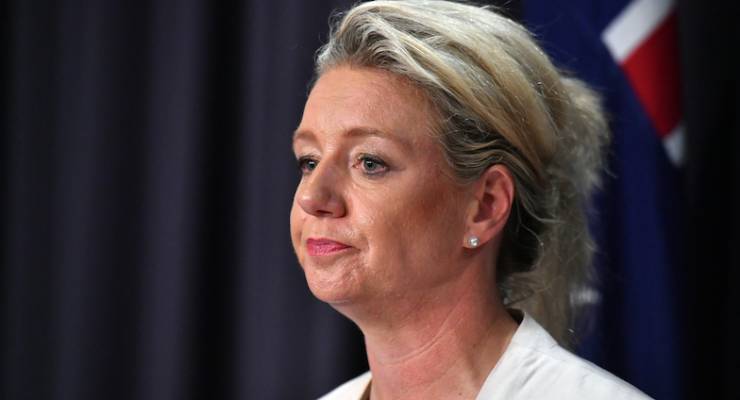
The Senate Select Committee on Administration of Sports Grants (aka sports rorts) should be encouraged to continue and complete its inquiry.
There will be protests that there are more important issues for the parliament to consider. This is in a sense true. Sports grants in themselves are trivial compared to the challenges of dealing with COVID-19 and our economic recovery.
Sports enthusiasts may disagree, but grants to local sporting bodies are not the key question here.
What matters is holding ministers to account.
Especially now, when ministers have unprecedented power to make decisions affecting our lives, it is more important than ever that they make those decisions properly, with authority from our elected representatives in parliament.
The institutional means to ensure this is a minister’s knowledge that their decisions will be subject to scrutiny.
Without that we go the way of countries like Hungary or the Philippines, whose presidents are assuming dictatorial powers under cover of the virus.
It’s not about Bridget McKenzie: she has moved on already. It’s about how a democratic system keeps ministerial power in check.
Australian citizens’ trust in government — and other institutions — has been falling over many years. All sides of politics have an interest in halting the decline, especially in light of our current challenges.
Trust depends, among many factors, on ethical and effective management of government grants. Grants are more sensitive than most spending programs. They can benefit communities and grass roots organisations — or be misused for party political purposes, to reward favourites, or enrich mates. They are open to abuse and mismanagement under both Coalition and Labor governments.
Grants programs should be fair, ethical and transparent, managed according to clear principles and guidelines.
One of the key principles of our system is that ministers should not decide how to spend public money without legal authority.
In its report on the community sport infrastructure grants the Audit Office (ANAO) said “it is not evident to the ANAO what the legal authority [for the minister to approve grants] was”.
In an answer to a question on notice, published this week, Sports Australia has confirmed it provided no advice to the minister on her legal authority. There is continuing doubt. Sports Australia says the legal basis was “Sport Australia’s own powers under the Australian Sports Commission Act 1989. In exercising its powers, it was open to Sport Australia to take account of the minister’s approval”.
Sports Australia reveals it only sought legal advice after the ANAO raised the issue. It has provided that advice, but asked the committee to keep it secret. Hopefully the committee will ignore the request. This advice was paid for with taxpayers’ funds, provided to a public body. It is hard to see how its release would harm national security or future commercial negotiations.
The former minister’s submission argues that there was no political bias in awarding the grants. The ANAO report suggested otherwise. The Senate committee, and the public, can draw their own conclusions.
Bridget McKenzie criticises Sports Australia’s grants processes, partly as a justification for her exercise of ministerial discretion.
She also says — confirmed by Sports Australia — that it never briefed her about the issue of legal authority to approve the grants.
On this last issue she has a point.
Ministers, absolutely, need to make their own inquiries to satisfy themselves that they are acting properly. They have offices to help them. She or her office should have.
Nevertheless, public servants should also help. It is not good practice to watch a minister walk blindfolded into a minefield while doing the bureaucratic equivalent of sticking fingers in your ears and singing loudly. Sports Australia notably failed to provide advice to its minister on her legal status.
We know how grants should be administered. There are Commonwealth Grants Rules and Guidelines (good guidance, even though technically Sports Australia is exempt) and numerous pieces of advice from the Finance Department, past ANAO reports, and parliamentary reports to draw on.
What failed here was not the regulatory framework, but the culture of accountability and responsibility.
The sports infrastructure grants were awarded hastily, in the context of a rapidly approaching election. Indeed, there is a question as to whether late changes were too late under caretaker conventions, under which governments do not take major decisions during the election period.
That is not an excuse. It is precisely in times of speed and pressure that ministers should be vigilant about acting properly and with legal authority. It applied then, and applies now, COVID-19 or not.








Agree with you totally Stephen. Including the key part where citizens are losing trust in governments to do the’ right’ thing. Generally speaking doing the ‘right’ thing I would imagine to many people means to do what is best to improve the quality of life of all citizens, particularly those who for whatever reason are disadvantaged in some way. It does not mean catering to the rich and hoping that that the ‘good things’ will trickle down to the rest. Copious research shows what a furphy that is along with the trite ‘a rising tide raises all boats”. More often than not the rising tide only raises the boats of the elite as it is designed to do and trickle down is better read as flood up to the wealthy. And so inequality continues to grow.
One guess which social class of citizens (in terms of wealth and income) will bear the brunt of all the negatives of COVID19?? Give up?? You would be brain dead not to be able work that one out. I will give the clueless a clue. It took less than a day for our worthy federal treasurer to be tested and cleared of the virus a little time ago. And of course that would be the experience of any ‘ordinary’ citizen – say someone living on the street or working as a casual. Really???
The Sport Rort affair merely confirms that government –especially the Morrison government‘s chief concern is not the common good but rather issues of self-interest such as maintaining power at all costs even if it means ignoring the rightful claims of our most needy, granting tax breaks to big business and building up walls of secrecy and increasing powers to reduce the power of others to criticize and bring in under greater scrutiny and transparency. All this is at the expense of our civil liberties.
Unfortunately, Stephen what you require are active and engaged citizens who are prepared to ensure that ideals of fairness and democracy are paramount in our society, that these key values are maintained and improved upon as our legacy to the next generation. Instead, all you have to work with in too many instances is an apathic lot of self-absorbed pie eaters and beer lovers whose biggest concern is what I should buy to-morrow or what is on the footy. Thank heaven the footy is back to give meaning to the life of such persons.
However, perhaps more likely the majority have little time to engage in such important issues as they are so consumed with just trying to get by and make ends meet. Because unlike the fat cats ordinary wages have barely increased over the last decade. Issues of inequality are integral to all that you have said above.
Good luck
Maybe Sport Australia didn’t ask for a legal opinion before the grants were made because they didn’t want to know the answer.
As an erstwhile PM said, “Better to seek forgiveness than permission“.
Don’t ask and you can’t be told to cease & desist.
I am feeling quite encouraged that journos from several media outlets are persevering with this sports rorts matter. The PM seems to get a question about it at every presser and uses it to end the presser as he wriggles and evades and stomps off.
Having read the articles and reports carefully it seems to me that the buck did stop in his office and there are lots of questions still to be answered.
Together with the failure to hold Angus Taylor to any standard of honesty the sports rorts reveals a government that is dishonest, evasive and incompetent. What a long dreary 52 weeks we have suffered.
Grants can also be used to punish the people who live in electorates that don’t vote for the government dispensing those grants – by withholding funding for and depriving those people of access to the facilities they need.
Deprivation of facilities to one group : to provide for those electorates that are held by government, even to excess…. “‘Regional’ North Sydney pool”?
Morrison’s withering stature whenever the bright light of day is drawn to it. This goes right to the top, or bottom, depending on your perspective.
He’s in this up to his forked tongue.
Considering there is no shame, just lies and doubling down on this, I’m fairly certain they have gotten away with using grants in many programs as personal enrichment/favors or electioneering. Now theres one that was so sloppy, if they get away with this, nothing matters anymore.